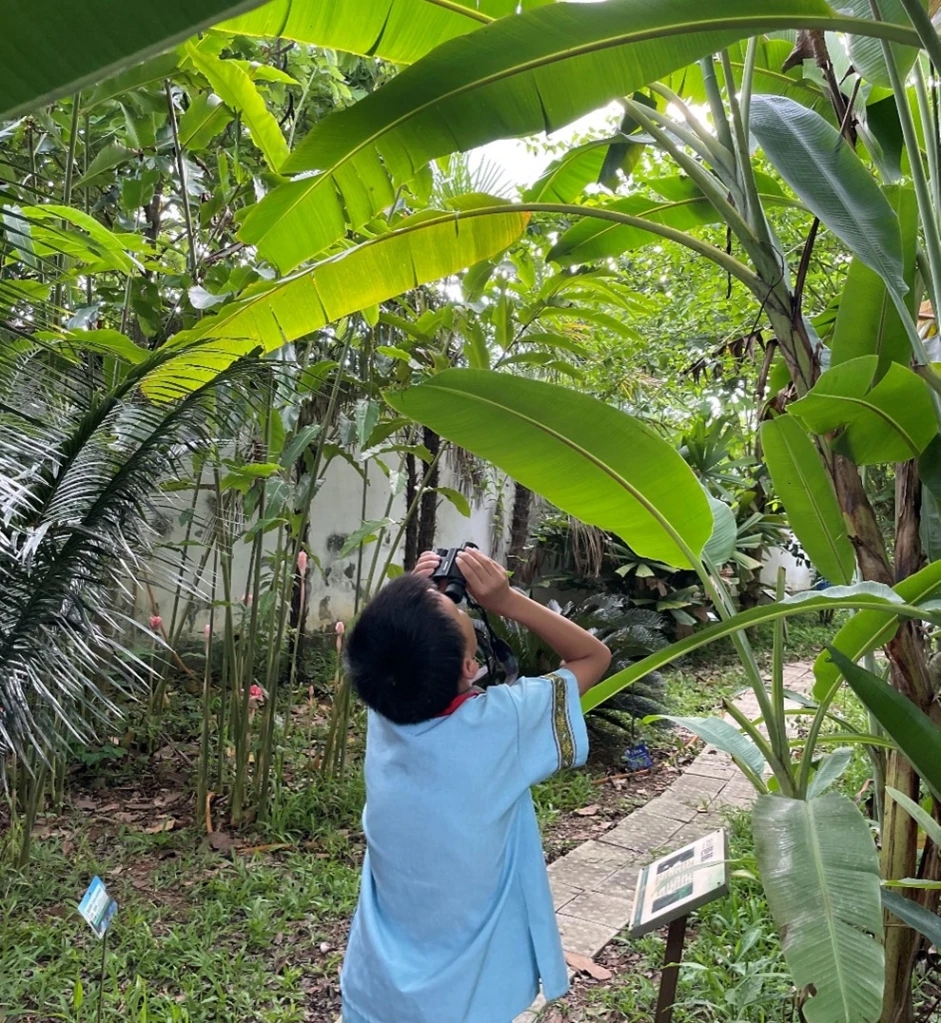Children's interest in nature is crucial for their understanding and appreciation of the natural environment, as well as for their mental health and biodiversity conservation efforts. The primary school stage is of great importance to develop an interest in nature. It is worth exploring whether a school garden with abundant natural components can be used to cultivate the interest of primary school children in nature while helping to alleviate their study-related stress.
In a study published in People and Nature, CHEN Jin’s team of Xishuangbanna Tropical Botanical Garden (XTBG) investigated the impact of natural observation activities and inquiry learning activities in a school garden on the development of children's interest in nature. They revealed that involving children in garden-based activities was advantageous in stimulating and maintaining situational interest, which could potentially lead to a long-term individual interest in nature.
The researchers conducted a semester of teaching interventions in a campus garden of a primary school in Xishuangbanna, SW China to investigate how children's interest in nature develops over time and interventions in the school garden. They also tried to identify the key factors that drive the development process.
The program involved 24 Grade-4 students in weekly 40-min activities, which were divided into three treatments: natural observation with assigned tasks, natural observation with open-ended tasks and inquiry-based activities.
In general, the interventions had varying effects on children's interest in nature. While some children experienced a decline in their interest, others maintained or increased their interest in nature. More than two-thirds of the 24 students were classified as ‘interest initiated’ or ‘interest enhanced’, indicating a generally favourable outcome.
Qualitative data analysis revealed that novelty, scaffolding, autonomy and social interaction were pivotal factors in the promotion of interest development in most children. In particular, a subgroup of children who exhibited sustained or heightened interest in nature demonstrated a more profound understanding and appreciation of the environment and its inhabitants.
The results revealed that the school garden, with its unique and safe environment, played a significant role in stimulating children’s curiosity about the creatures in the garden. It provided an exciting and novel space for exploration.
"Therefore, implementing a diverse school garden with informative labels and explanation boards, along with teacher support, represents a promising approach to cultivating children's interest in nature, particularly during the critical developmental stage of 9–11?years of age,” said CHEN Jin of XTBG.
Contact
CHEN Jin Ph.D Principal Investigator
Key Laboratory of Tropical Forest Ecology, Xishuangbanna Tropical Botanical Garden, Chinese Academy of Sciences, Mengla, Yunnan 666303, China
E-mail: cj@xtbg.org.cn
First published: 6 February 2024

A child observing the flowers on the tree with binoculars in the school garden. (Image by KONG Chuwei)

